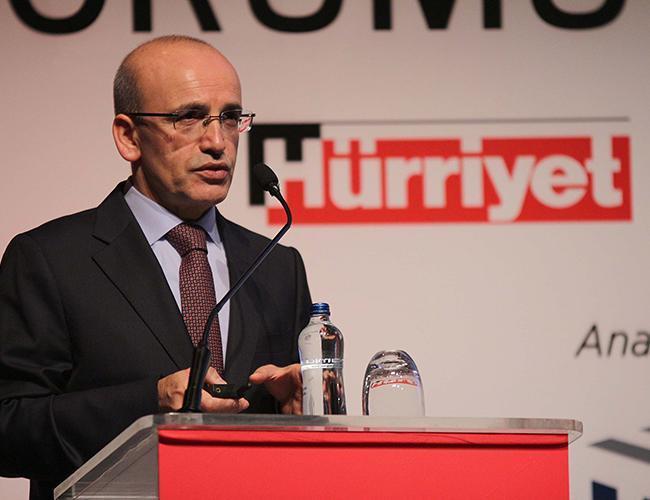
Deputy Prime Minister Mehmet Şimşek announced on Dec. 6 that the Turkish government is set to limit the debts in foreign currencies of a total of 23,000 companies in the country.
“We will make an important structural reform in Turkey very soon. Some 25,000 companies have foreign exchange liabilities and 23,000 of them have foreign exchange liabilities below $15 million. Those are relatively small and medium sized companies. The share of 23,000 companies in foreign exchange liability is around 16 percent while the share of 2,000 big companies is around 84 percent. This week, we set up the legal infrastructure on collecting data of those 2,000 companies in the first place. We will set up a framework and we will put direct limitations [over foreign exchange debts] on those small and medium sized companies,” Şimşek said at the Turkey Finance Forum in Istanbul.
“Our intention is to take same measures we had taken for households. There will be some exceptions for machine equipment and exports. There will be some other exceptions, but we will resort to limitation in general terms,” he said.
Şimşek also noted that there are no other banks in Turkey except for one that have been requested information by the U.S. Treasury, amid the ongoing trial of former Halkbank deputy manager Hakan Atilla in New York, who is charged for evading U.S. sanctions on Iran.
Şimşek said the government was expecting the reform realized in the first quarter of the year.
“A wide range of reform was approved and we think that it will be implemented as of the first quarter. It is a reform ranging from enforcement and bankruptcy to building permits that reduce processes and the cost,” Şimşek said, adding that the reform could also lead to a double increase in the current direct investment to the country.
“We are in a period where we can increase sustainability to shocks with structural reforms,” he said.
Tax reform bill ‘completed’
He added that the tax reform bill was completed.
“Our tax base is narrow and the rate of income and corporate tax to the national income is around six percent. There is a need for reform here. Dependency on indirect taxes is high, and this reform is important,” Şimşek said.
Şimşek also said the government will ease recruitment and disemployment processes amid high costs.
“We have a subemployment problem. The participation rate is quiet among females. The main problem is that recruitment and disemployment is very costly. It is that simple,” Şimşek said.